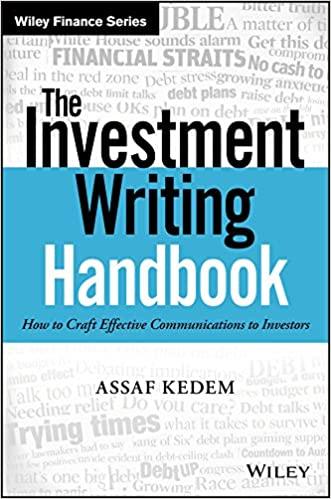Answered step by step
Verified Expert Solution
Question
1 Approved Answer
Year 0 Year 1 Year 2 $3,825,000 Year 3 $1,575,000 -$4,500,000 $1,800,000 Expected cash flow Cumulative cash flow Conventional payback period: years The conventional payback



Step by Step Solution
There are 3 Steps involved in it
Step: 1

Get Instant Access to Expert-Tailored Solutions
See step-by-step solutions with expert insights and AI powered tools for academic success
Step: 2

Step: 3

Ace Your Homework with AI
Get the answers you need in no time with our AI-driven, step-by-step assistance
Get Started


